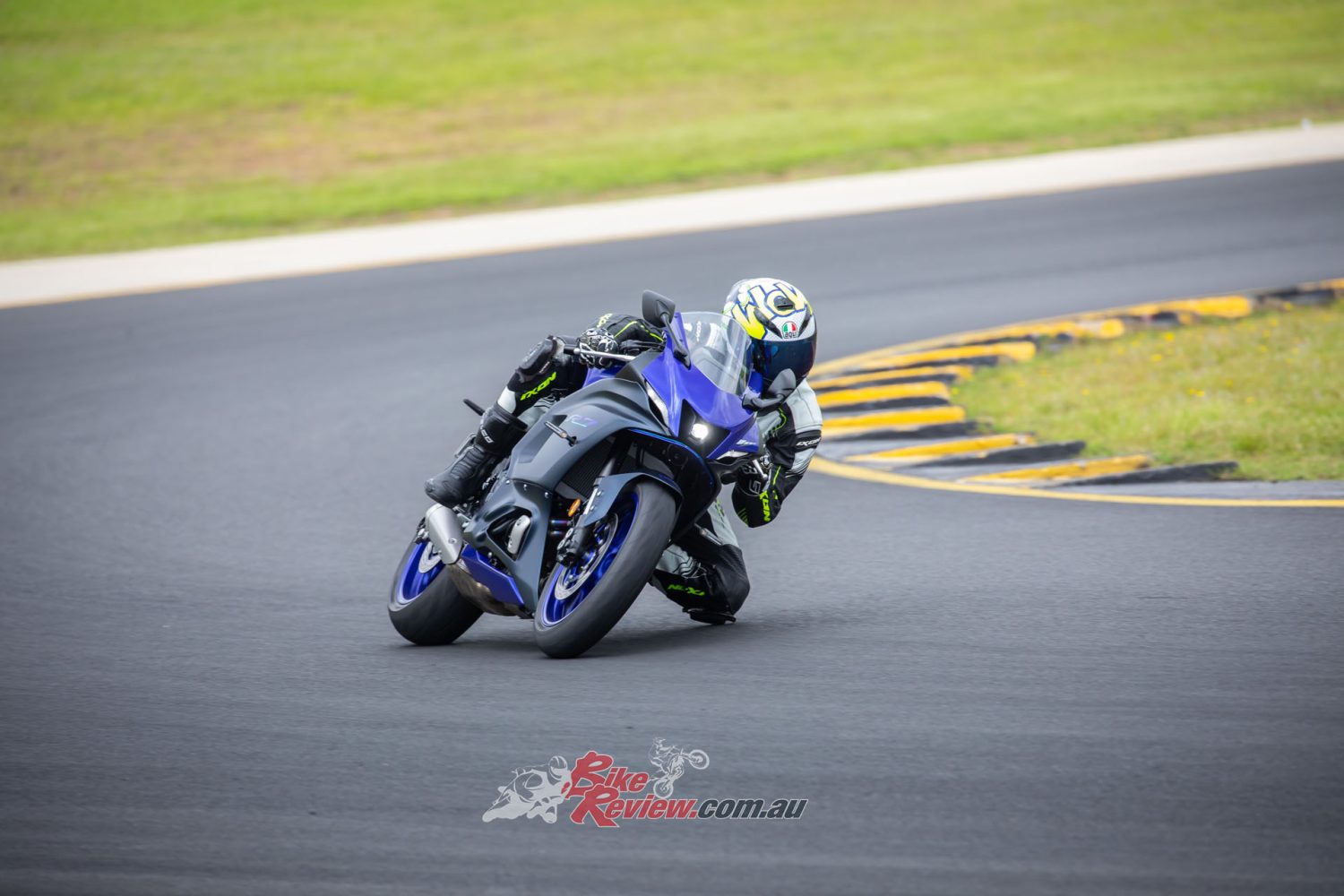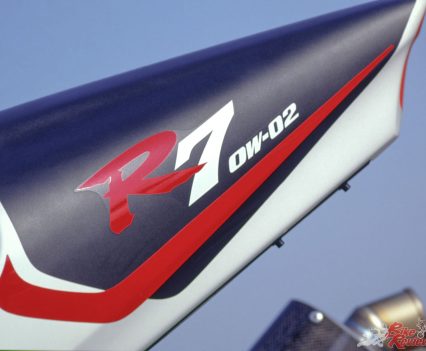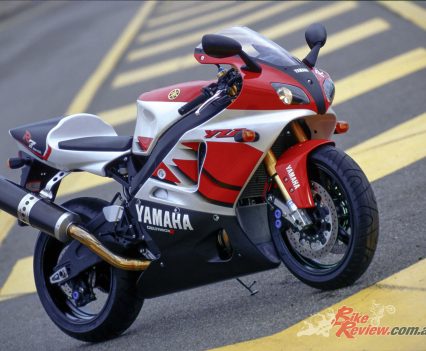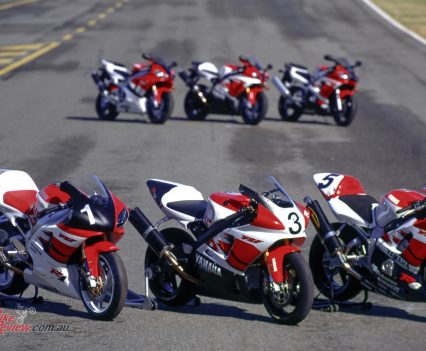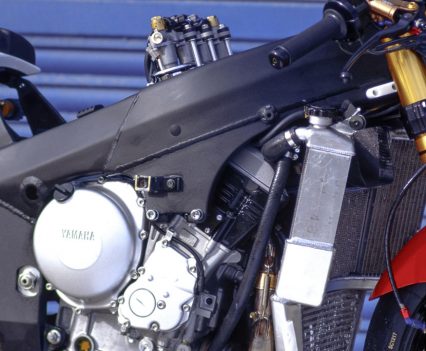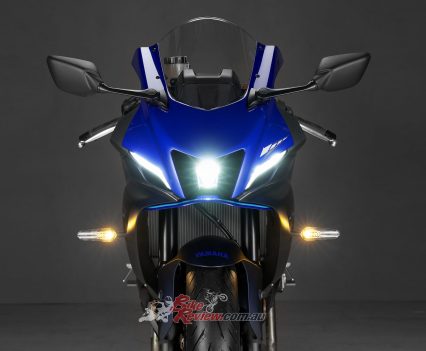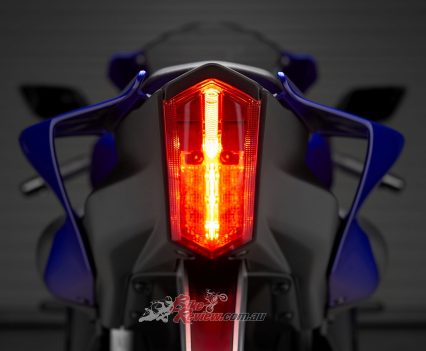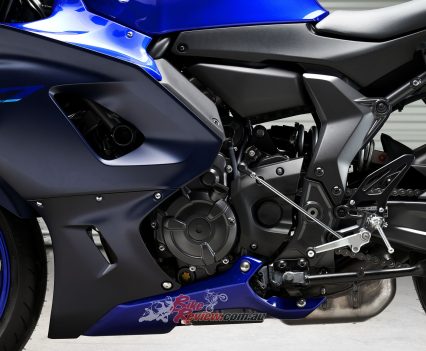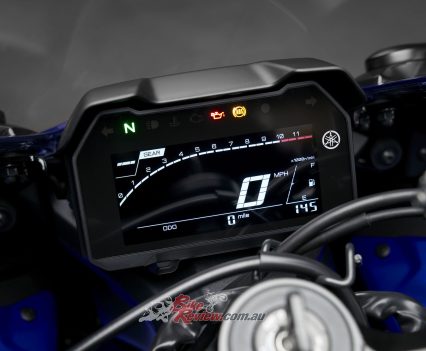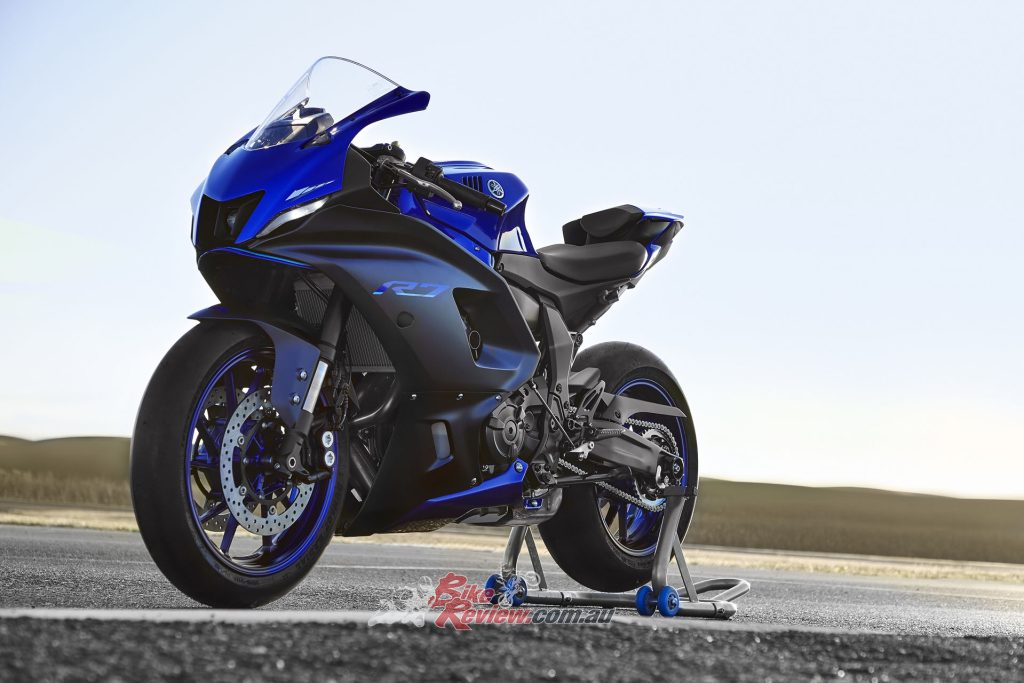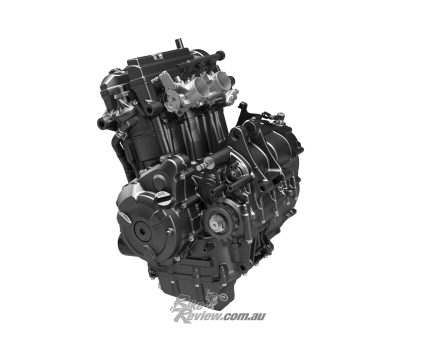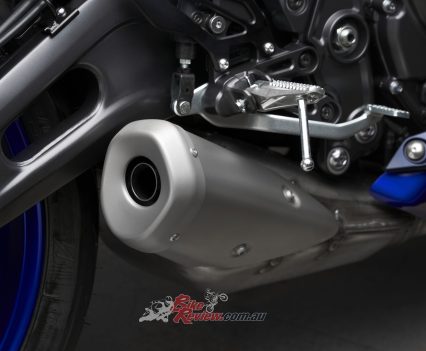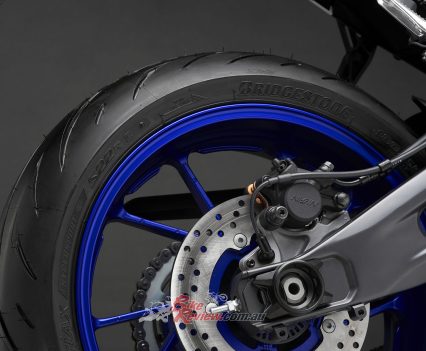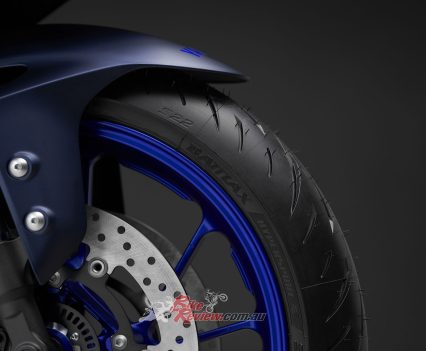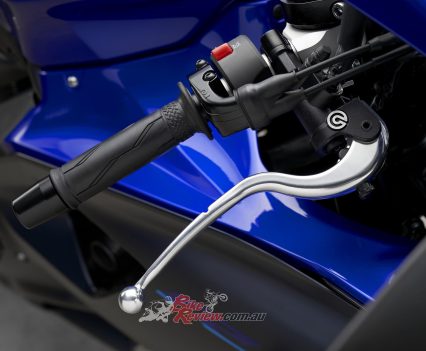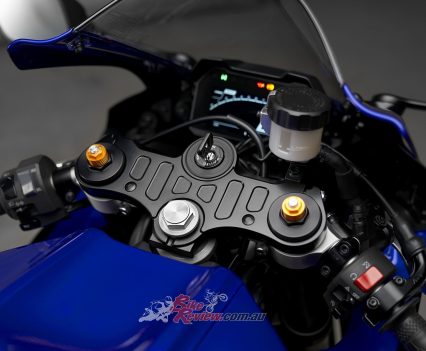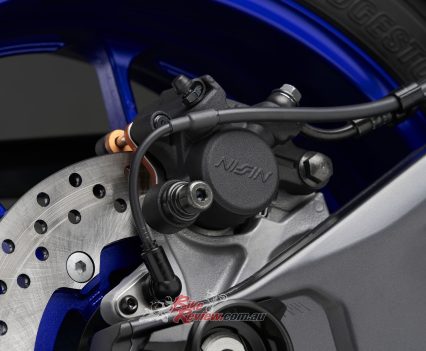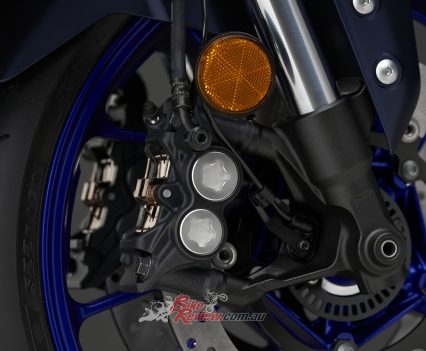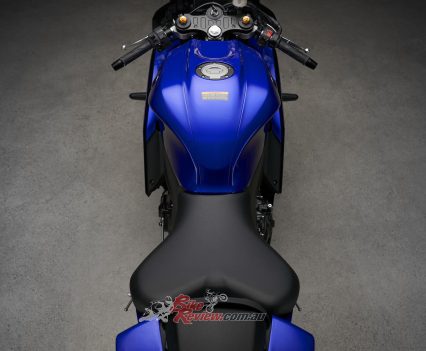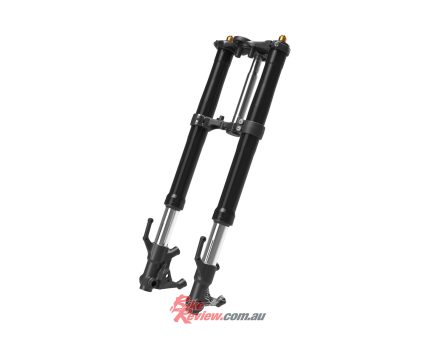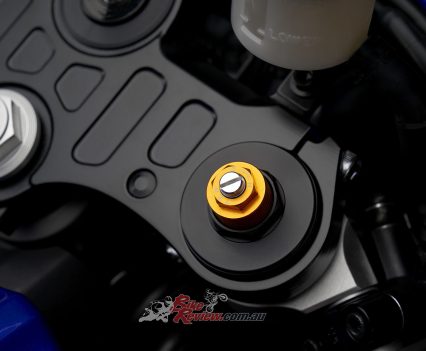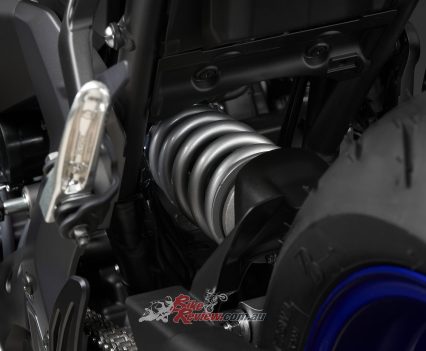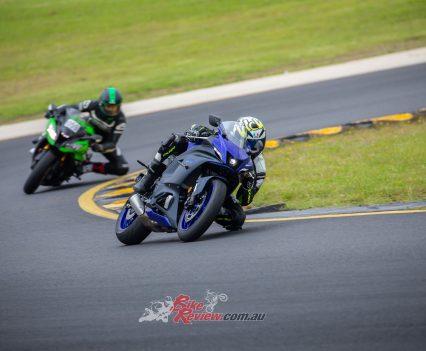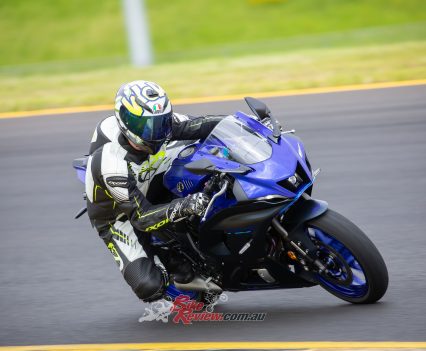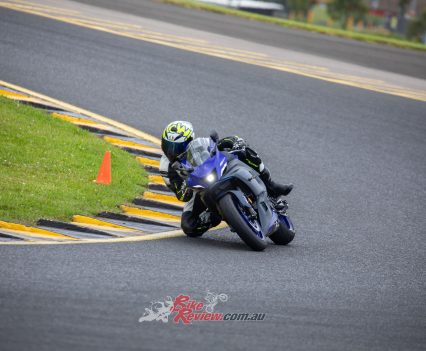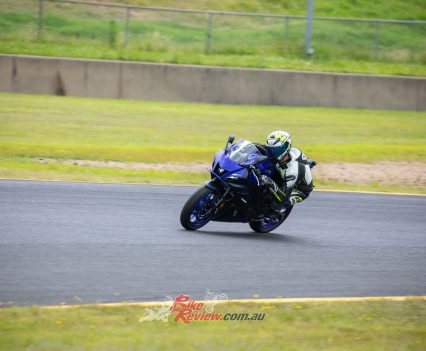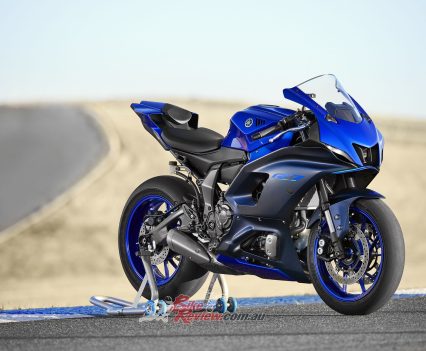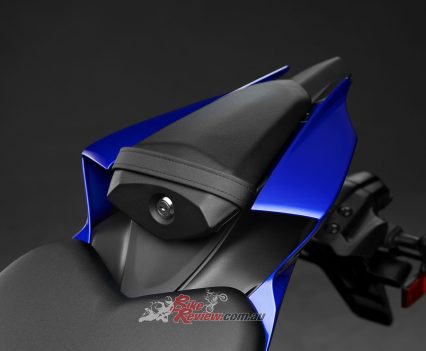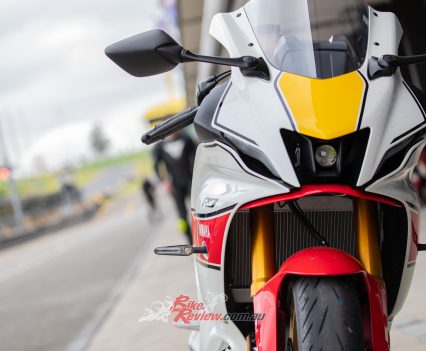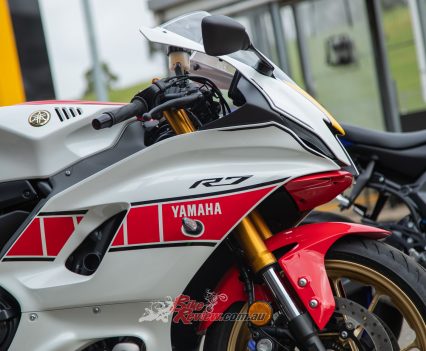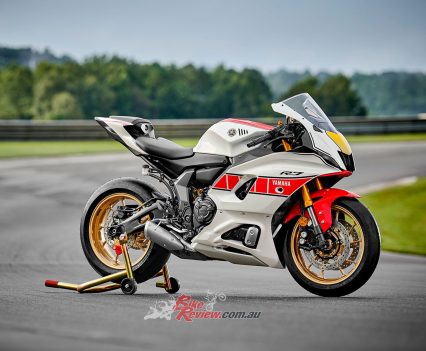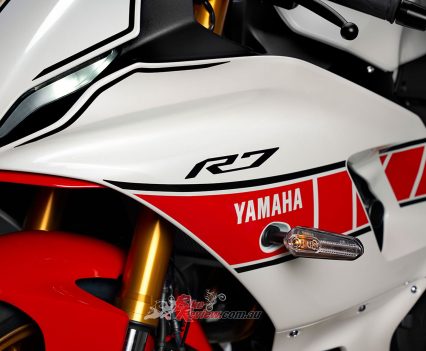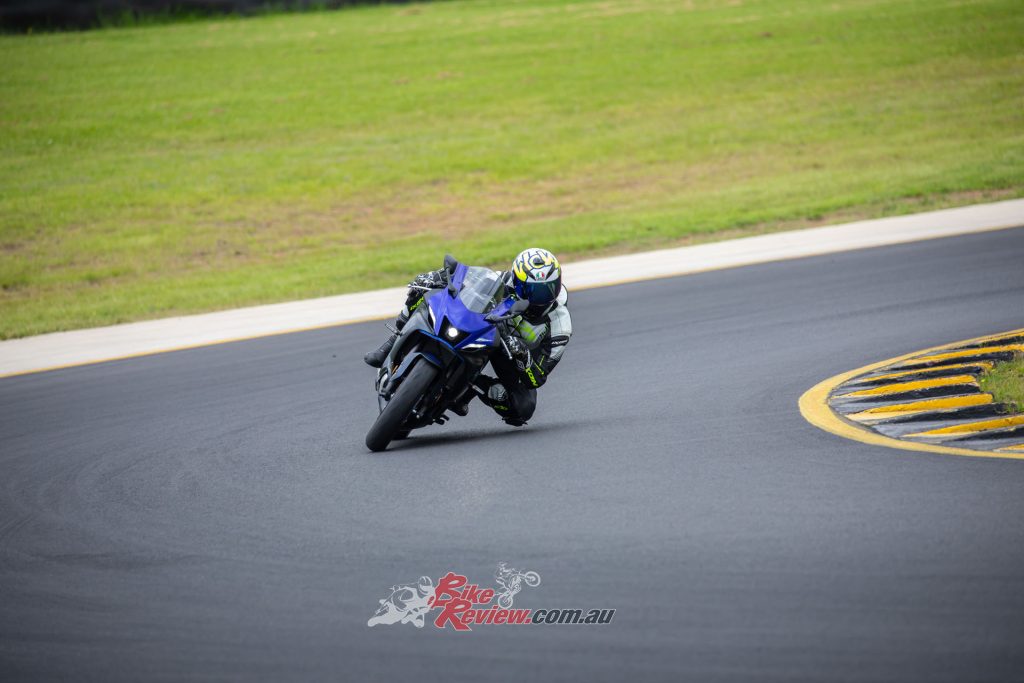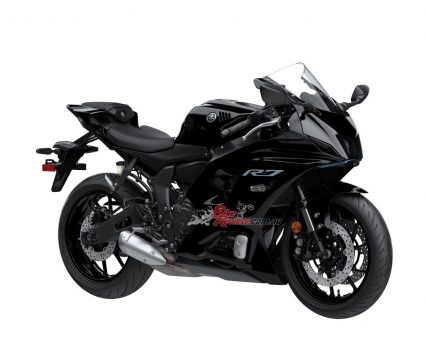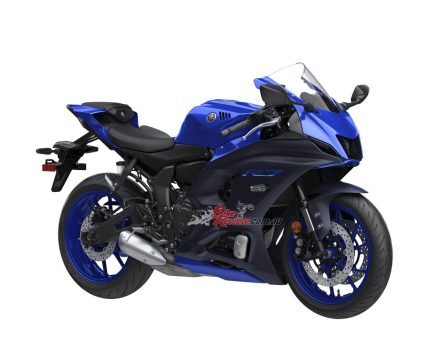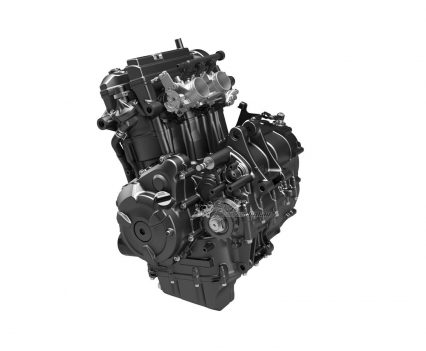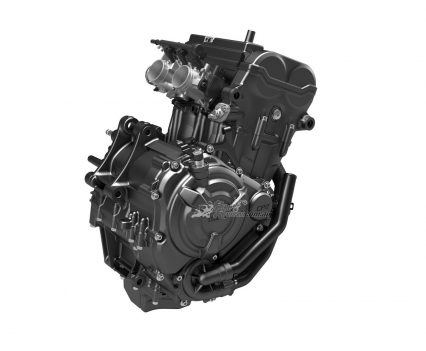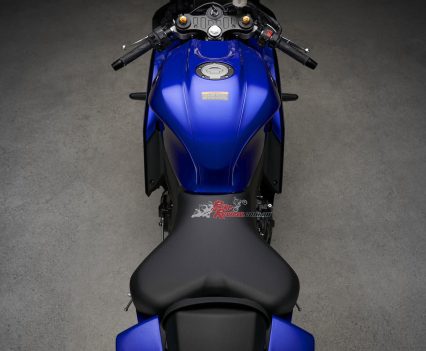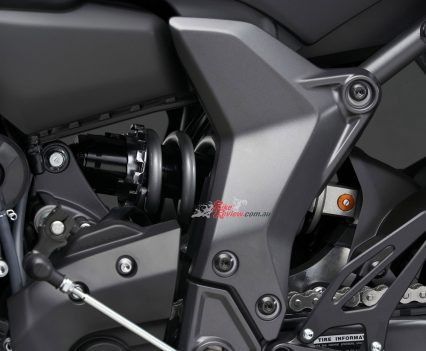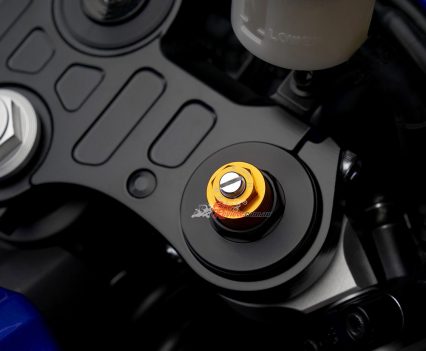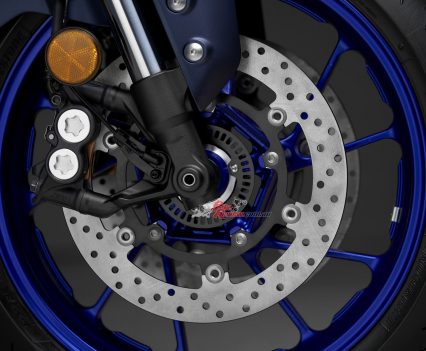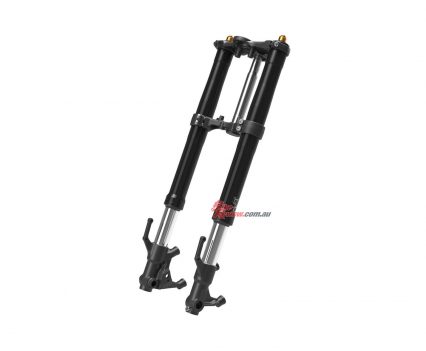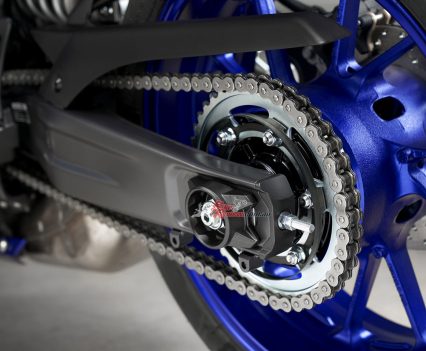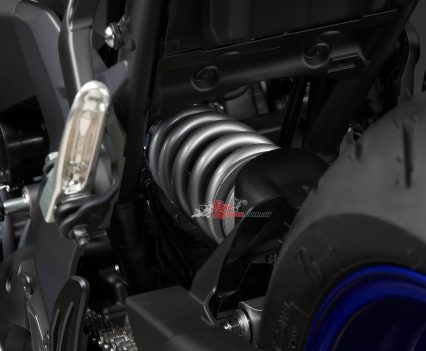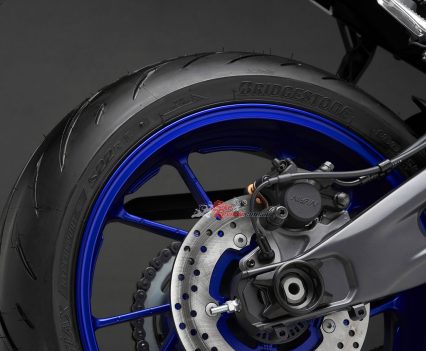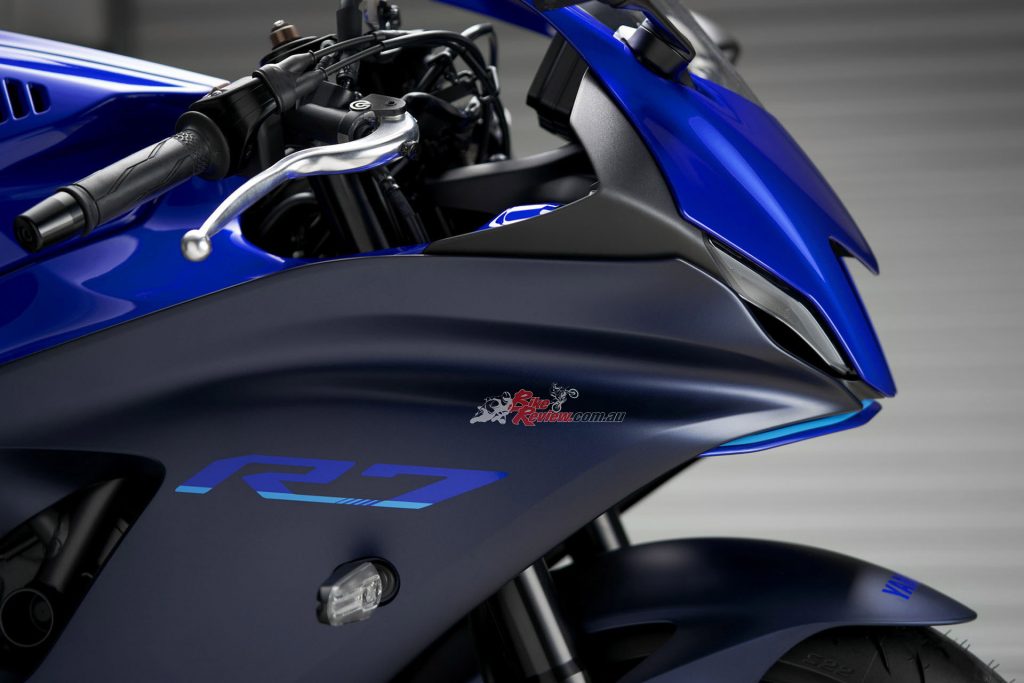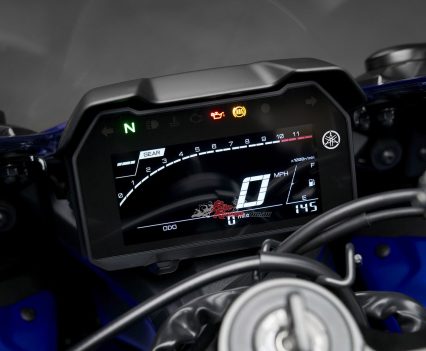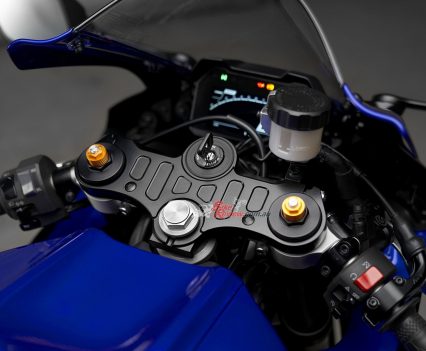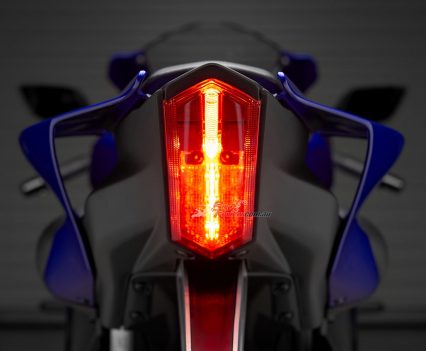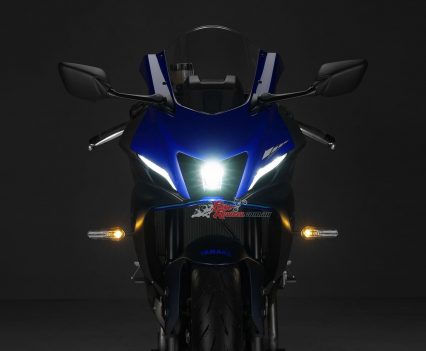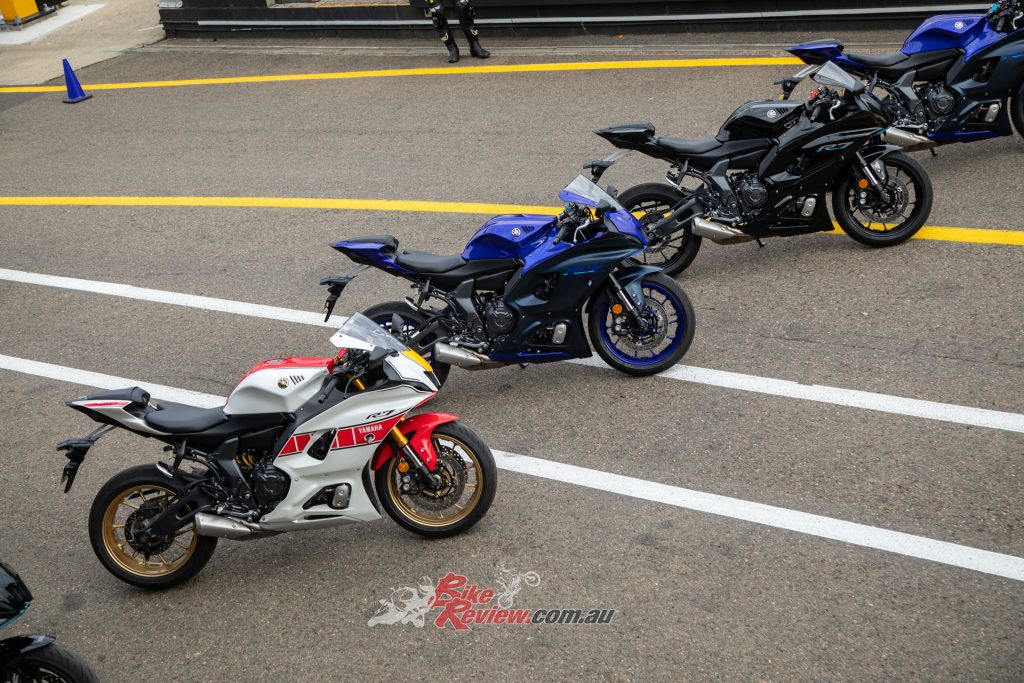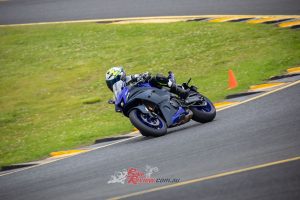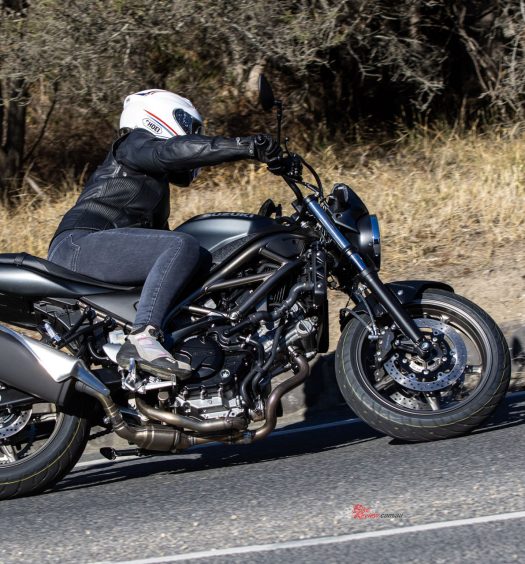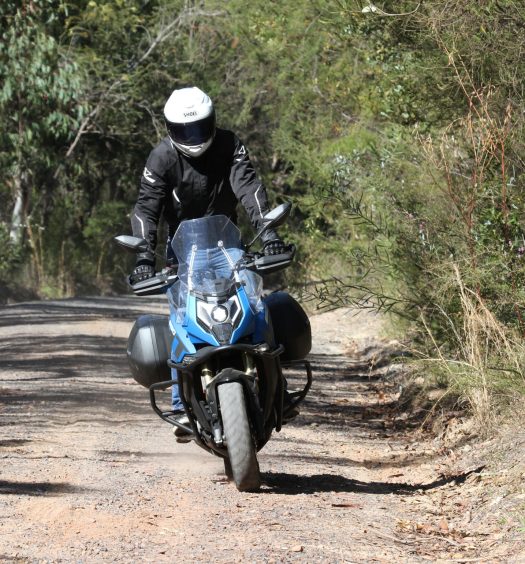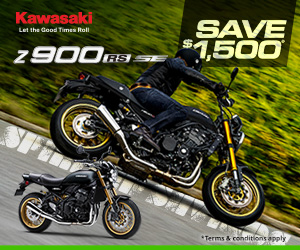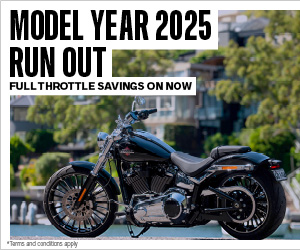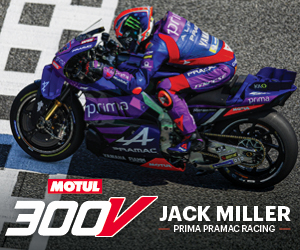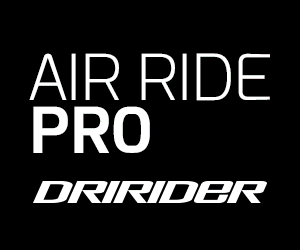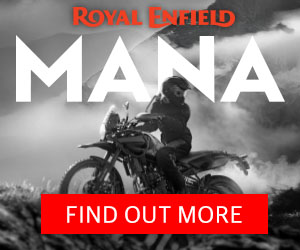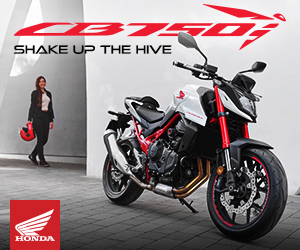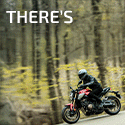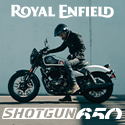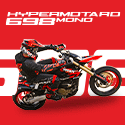The first of the Yamaha YZF-R7's are beginning to land in Australia, we sent Zane out to check out how it handled SMSP... Review: Zane Dobie Photos: Colin Chan/Yamaha Australia.
I have been eagerly awaiting a turn on the new Yamaha YZF-R7 after it was announced earlier in 2021, with COVID outbreaks and border closures the launch of the all new model was pushed back to December where I finally got to check out how the bike handled SMSP.
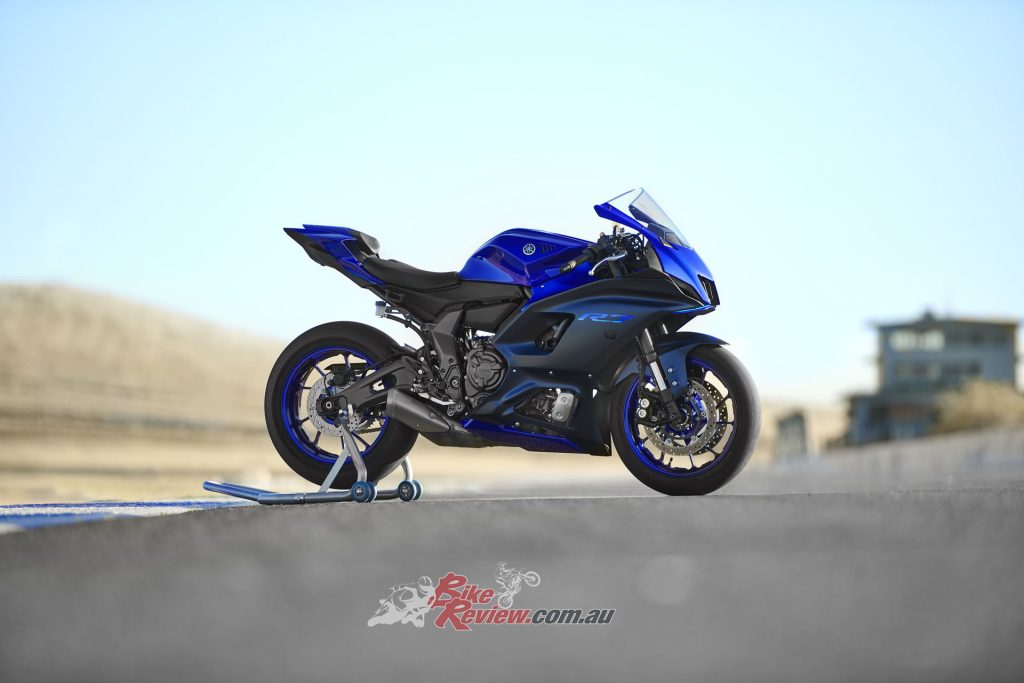
The new Yamaha YZF-R7 has been eagerly awaited follow the new that Yamaha will be discontinuing the YZF-R6…
2021 was a blur, with half the year spent cooped up at my desk. This meant little track time throughout the year, so what better way to get my confidence back up than on Yamaha’s new mid-range sports bike. I’m no stranger to the YZF-R7’s road centred brother, the MT-07, I spent thousands of kilometres daily riding one through 2019 and applying the entirety of Yamaha’s genuine accessories catalog to it, I was looking forward to seeing how their latest attack on the mid-size category compared to the MT-07.
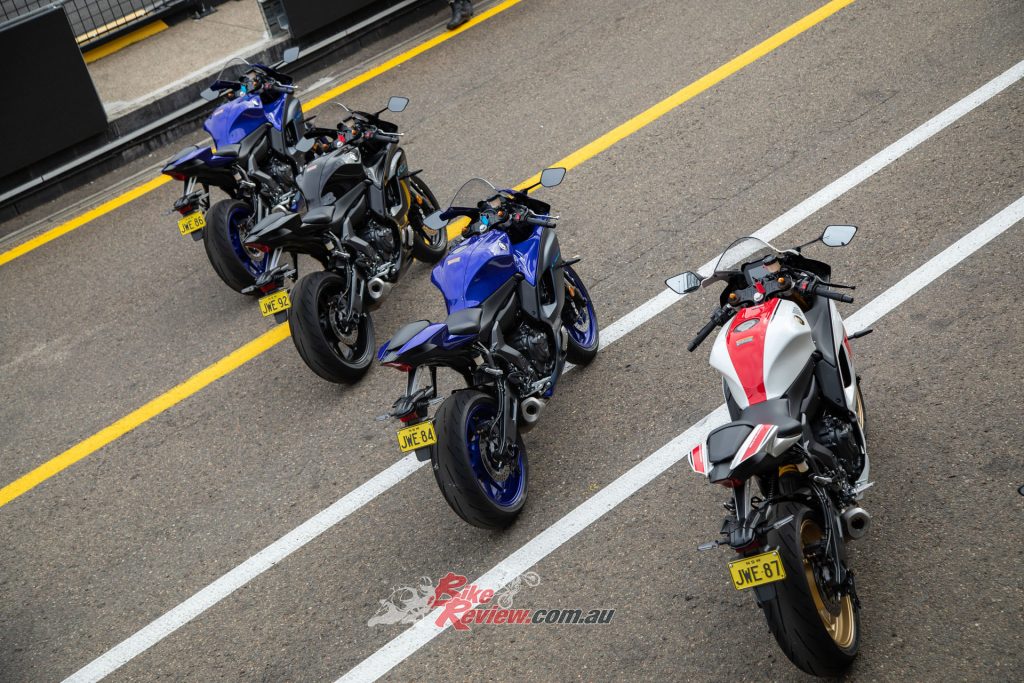
Yamaha welcomed us to the track with the range of YZF-R7’s in all the colour schemes they’ll be available in for 2022.
With the YZF-R6 being a much loved bike for over 20 years, the YZF-R7 had big boots to fill. Sean Goldhawk at Yamaha Australia explained that the motivation to bring in the new model and stop production of the R6 was to try and find that happy medium between the YZF-R3 and the YZF-R1 in the R family. They have successfully achieved this by offering a LAMs approved option for new riders, looking for something fun and easy to ride. But, has it successfully filled the void left behind by the R6? Not quite, but more on that later.
We can’t forget the beginning of the Yamaha YZF-R7 name back in 1999 with the WSBK homologation bike. Off the showroom floor, the original R7 was sporting a four cylinder 749cc DOHC engine with a whopping 20 valves which produced 79kW@11,000rpm and 72Nm@8,000rpm.
Check out Alan Cathcart’s review of the 1999 Nori Haga WSBK R7 here…
Along with the beautiful engine which was obviously capable of a lot more, proven by the Nori Haga WSBK R7, was a top of the line Ohlins suspension set-up which could be thrown on a 2021 bike and not look out of place. It’s safe to say that the 2021 YZF-R7 has a lot to live up to.
After seeing the new YZF-R7 in real life for the first time, it’s safe to say that just about everyone who caught a glimpse of it was impressed. Everything from the single projector front, streamline curves and R1 inspired tail fairing were carefully crafted to make one stunning looking bike. Don’t even get me started on how extraordinary the 60th anniversary livery looks. If I had the coin, one would be hanging up on my wall right now.
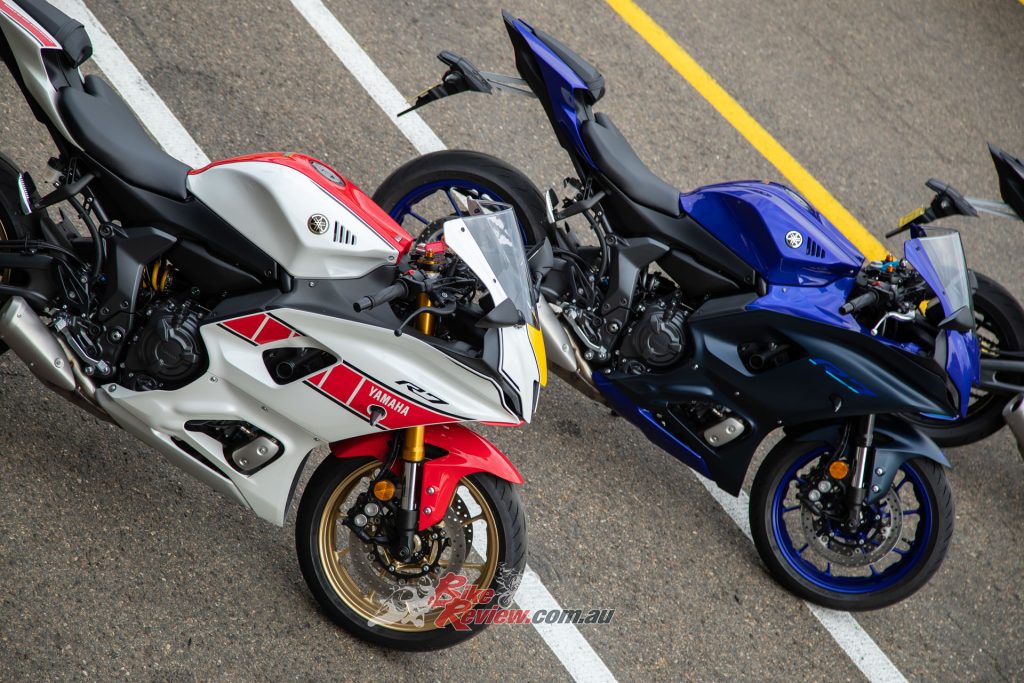
The 60th anniversary livery was on display at SMSP, we were extremely impressed with how well it fit the YZF-R7.
Despite looking gorgeous from just about every angle, Yamaha engineers looked to make the R7 more comfortable and streamline, adding that signature racer feeling to an otherwise tame bike, much like on the R3. I’m not the smallest dude but at six foot tall I seem to feel uncomfortable on most small bikes, while the R7 had plenty of room to move about, the knee positioning on the fairing could definitely use some tweaking to accommodate for the larger crowd.
The YZF-R7 seems to lack in the adjustability section, the R6 was sporting Yamaha’s amazing suite of assists and a TFT dash, which unfortunately didn’t make its way over to the R7. Instead, you’re met with a black and white LCD screen combined with hopes, dreams and rider skill for wheelie control, TCS and etc. You do however get ABS which works a dream.
The new sports model shares the same parallel twin powerplant as the MT-07, which prior to jumping on the bike, I had my reservations about. It’s a great engine with plenty of torque but almost a polar opposite to what the R6 was sporting. Initial start up also proved somewhat depressing as the beautiful sound of the four cylinder has been replaced with a quiet and gentle sound of the two-cylinder. I’m sure the Akrapovic system available in the Yamaha genuine parts catalog should sort it out, but the void left by the gorgeous sounding R6 engine hasn’t been matched in terms of exhaust note.
Before jumping on the bike to take it for a spin around SMSP, a quick check over things that might annoy riders daily was on my mind. Throwing your leg over while it was on the side stand felt a little goofy with the high tail fairing but the stand seemed to sit in an easy spot for new riders to not make the mistake of dropping the bike putting the stand down. The pillion seat is quite high, I would be opting for the seat cover to have an excuse not to take anyone on the back…
The Ride
The launch of the R7 was actually supposed to be held at The Bend Motorsport park in SA, which I felt would’ve been a little more suited to the bikes abilities. Nonetheless, I still thought I’d take it nice and easy and just enjoy the ride on the SMSP GP layout.
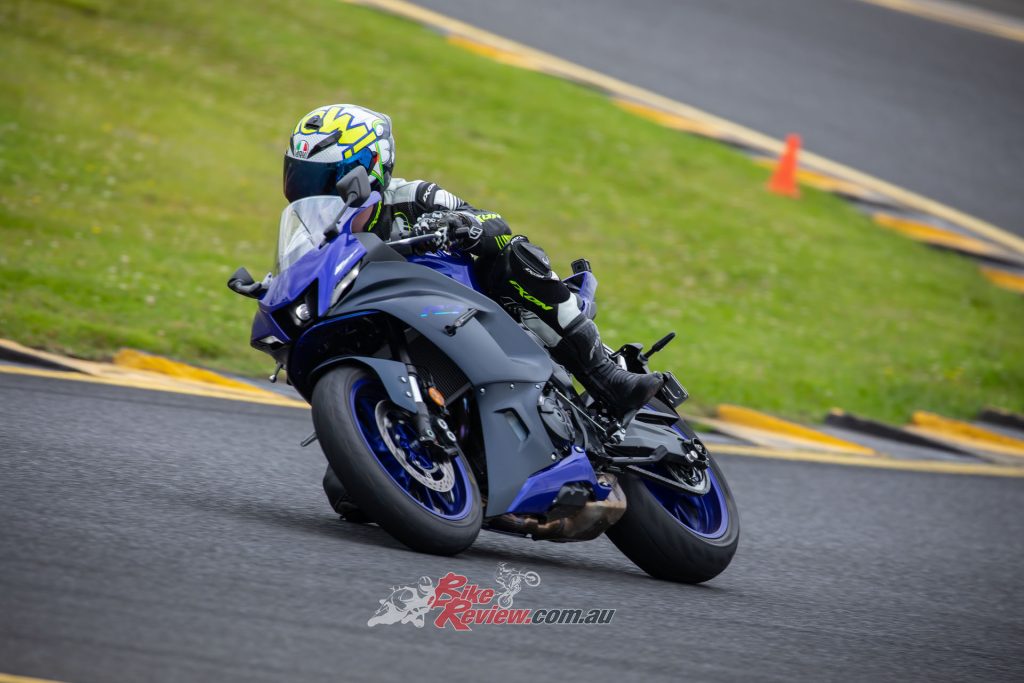
Despite weaving for tyre warmth being prohibited, the Bridgestone S22 hoops had zane cranking the R7 over in no time.
Initial tip on the sizeable Bridgestone S22 tyres was seriously impressive. Even on the first session out with no warm up due to weaving being prohibited at the event we were riding, the R7 was already falling into corners with ease after a lap. The tyre edge had confidence inspiring grip levels which made for plenty of fun. Check out our Bridgestone S22 Reviews here…
Chucking 120/70 – 17 hoop on the front and 180/55 – 17, which is the same as the MT-09, on the rear don’t just suit the R7 perfectly in terms of grip levels, but transform the look of the bike. Being the age demographic that Yamaha would be looking to market the LAMs R7 for, something as comical as having a decent sized set of tyres to show off that you’re not riding a low powered grocery trolley but a high powered sportsbike is something on the list of many new riders… Seriously!
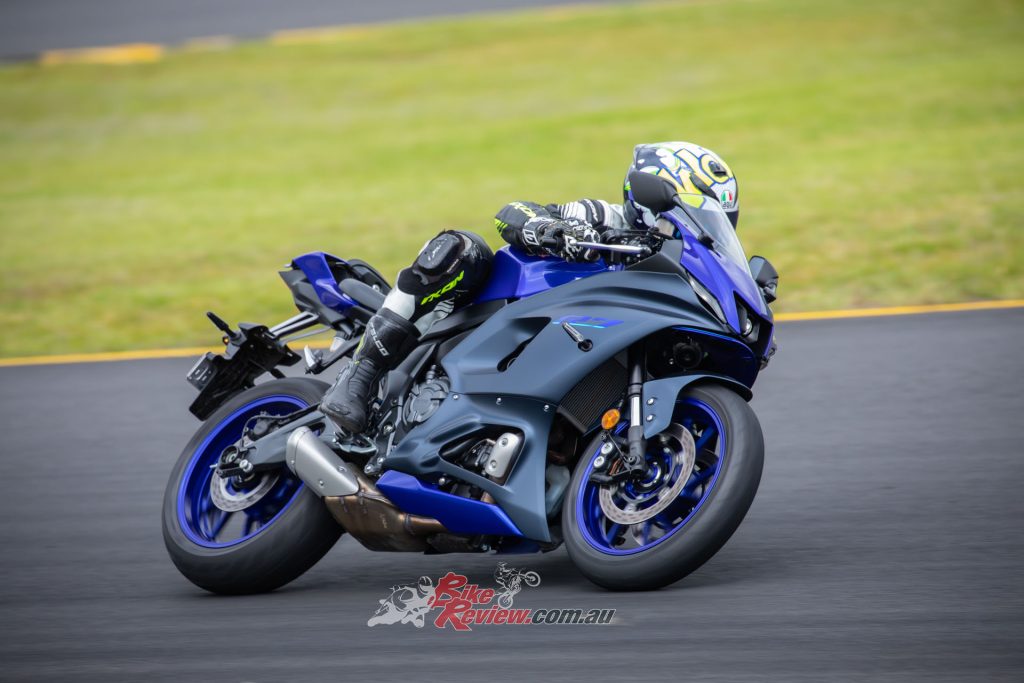
Yamaha really hit the mark with their tyre sizing. Making the Yamaha YZF-R7 look like a proper, full sized sportsbike instead of the usual skinny tyres seen on most LAMs approved bikes.
Confidence has always been a big thing for me, I always make sure to bring media bikes back in one piece at the end of the day. That being said, the R7 just seemed to fall on its side with ease, the whole tyre set-up was amazing and suited the chassis well. The bike allowed me to lean it over right to the edge through corners while gripping well under brakes and on corner exit, what a beaut of a set-up!
Something Yamaha attacked extremely well is the braking system on the R7. Earlier in the year, Jeff and I were riding the whole MT range at 70North and after Jeff hopped off the MT-07, it had almost no brakes left, this was not the case with the R7. After being thrashed around SMSP all day, the brakes had absolutely no fade. Even after multiple laps of slamming the front and a bit of rear brakes on into turn two, they were always there and always at 100 per cent usage.
The braking power is improved by a radial brake master-cylinder from Brembo, running down to the dual four piston calipers with 298mm discs at the front, the lever felt great all day. Rear brakes are nothing special but still work great without any lock up no matter how hard I jammed them on. Impressed with the braking system is probably an understatement!
Check out Jeff’s test of the 2021 MT Range at 70North here…
The parallel twin appeared to be struggling a fair bit when it came to the big SMSP straight, it felt like it was just running out of puffing in sixth gear. While the parallel twin is the perfect choice if you want buckets of power, it felt like it didn’t perfectly suit an R chassis on track. The rest of the R range begs to be revved to redline and even the R3 will continue to gather speed before turn one a SMSP but the R7 seemed to be topping out at around 210km/h while in a fully tucked position.
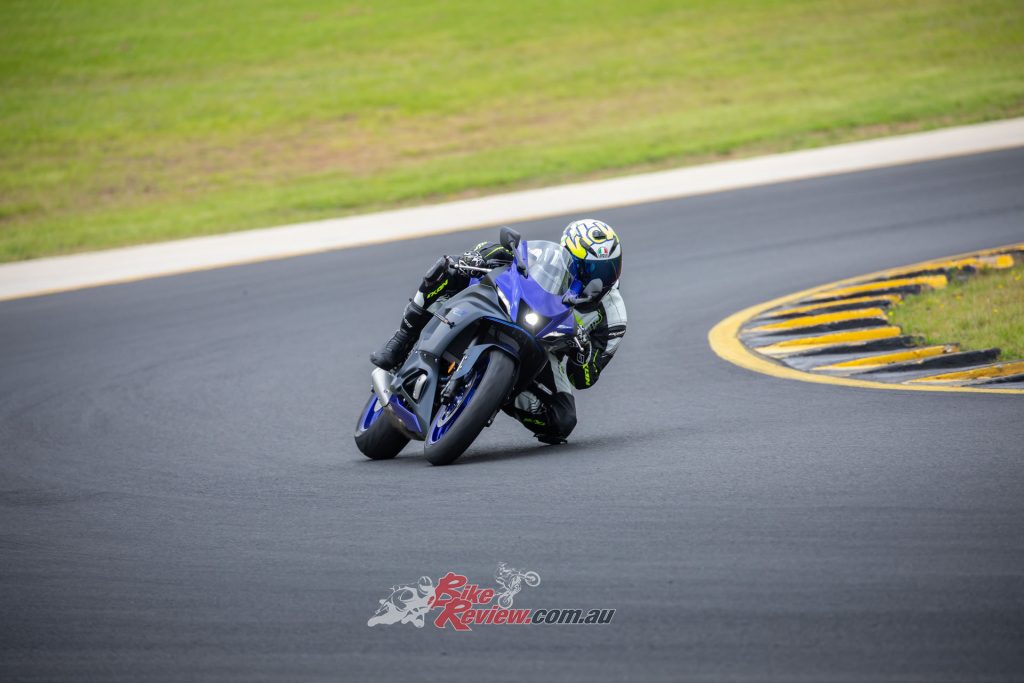
“After a while you’ll start to work out that the lower the revs, the quicker you’ll go as you roll into corners and unleash the torque on exit.”
With that being said, the set-up felt like a perfect bike for a beginner track day rider. It was super easy to power out of corners without needing to worry about being in the wrong gear. In just about every gear the R7 felt more than happy to give you plenty of grunt out of corners. After a while you’ll start to work out that the lower the revs, the quicker you’ll go as you roll into corners and unleash the torque on exit. A weird sensation for me as I’m used to slamming down the gears of my race bikes, getting plenty of engine braking and exiting the corner at full revs…
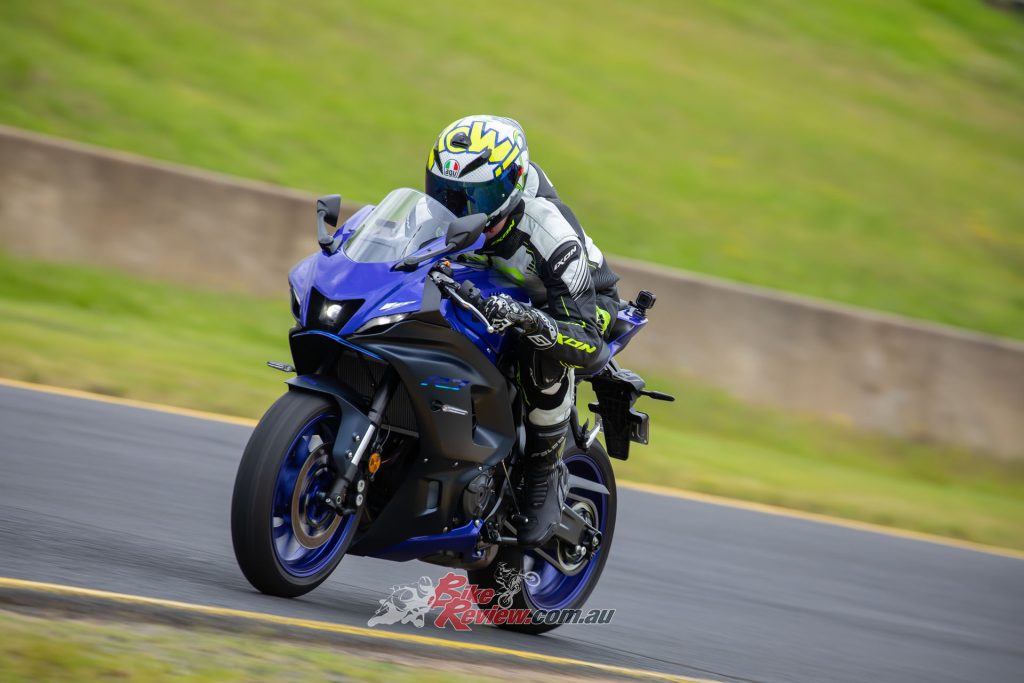
The R7 struggled with top speeds down the big SMSP straights, even with Zane in a full tucked position he could only manage a max of around 210km/h.
Gearing was strange for the track, most of SMSP you were either in fourth or sixth to get the most out of the parallel twin, a track like Wakefield Park I probably wouldn’t have noticed it as much as on a track such as SMSP. The clutch seemed to be slightly grabby on downshifts despite a slip and assist setup, toward the end of the day it loosened up so it may have just needed to be broken in with some hard riding!
“Despite taking it relatively easy and getting a feel for the bike, before the end of the day I was only slightly lifting off into turn one. A testament to how well the chassis was setup…”
I was seriously confused why Yamaha didn’t throw a quickshifter from the factory on the bike. It was crying out for one even when I took it for a quick spin out on the road before arriving at the track where the need for it became even more apparent. The shifter felt clunky and awkward which really let down the overall feeling of the bike. Yamaha say they have one available in their genuine accessories catalog but are unsure if it will fit the LAMs version, my bet is that it will, they just don’t want to advertise licence class that aren’t allowed modifications.
Despite the simple set-up, I quite liked the suspension in terms of performance. The front KYB 41mm USD forks in particular were set-up nicely for track riding and can be adjusted manually for preload, rebound and compression damping force. A whole day on track along with a short road ride proved the front suspension to be comfortable.
Under braking, the nose didn’t dive no matter how much you squeezed those marvellous brakes, and the triple-clamp provided a nice sporty position without being a pain on the wrists. We’ll be back with a full road test soon, but initial impressions after a half hour ride are good – it’s a great motor on the streets and will be a fun and potent weekend scratcher.
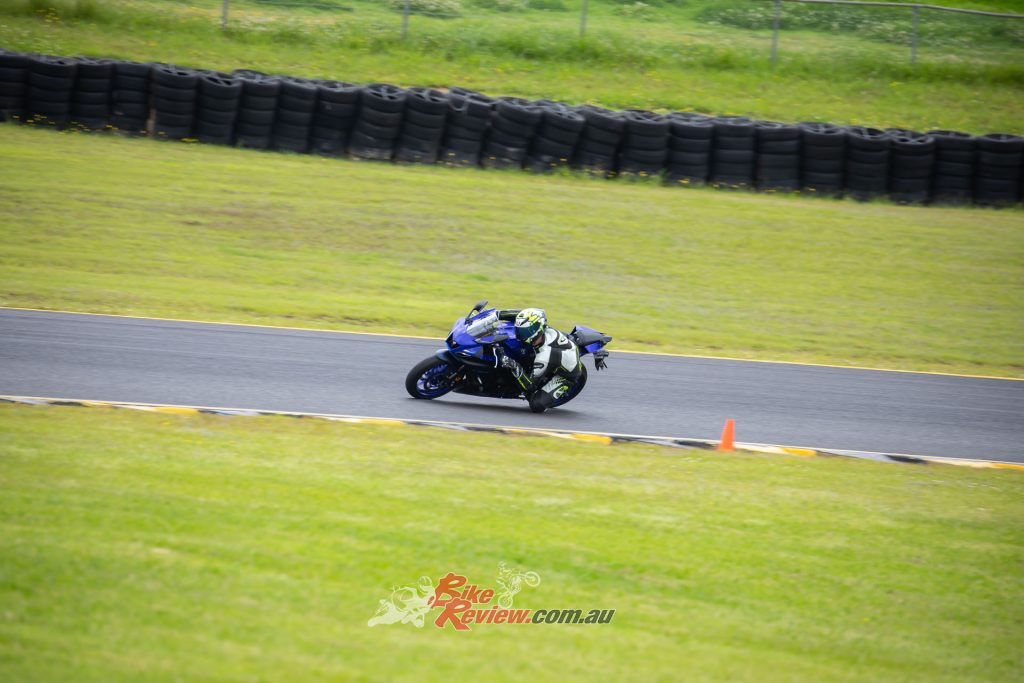
The R7 suspension might not be on par with the old R6 but Zane reckons it handles braking and hard acceleration well…
The shock fell to the same demise that the MT-07 has had for many years, it’s not perfect on the public roads. I will however admit that I didn’t change any of the spring preload and rebound damping set-ups on the monoshock but knowing the MT-07 well, I’m not sure that wouldn’t have changed much. With that being said, the rear performed beautifully when it came down to track riding. No squatting despite twisting the life out of the throttle on the corner exits, although something a bit higher tech would’ve suited nicely, maybe even an SP model in the future?
The seat could’ve been more comfortable on the street too. It seemed overly slippery and on downhills when I slid forward and met with the tank, I was left in serious pain. However, the rest of the design worked really well on track, much like the R3, the R7 makes the most of its space and allows riders to get the most out of the relatively small bike with knee pockets on the side of the bike and an optimisation for the tuck position. I felt more than comfortable to lean completely off the bike without needing to modify the seat, which is often the first course of action for any bike I take on track.
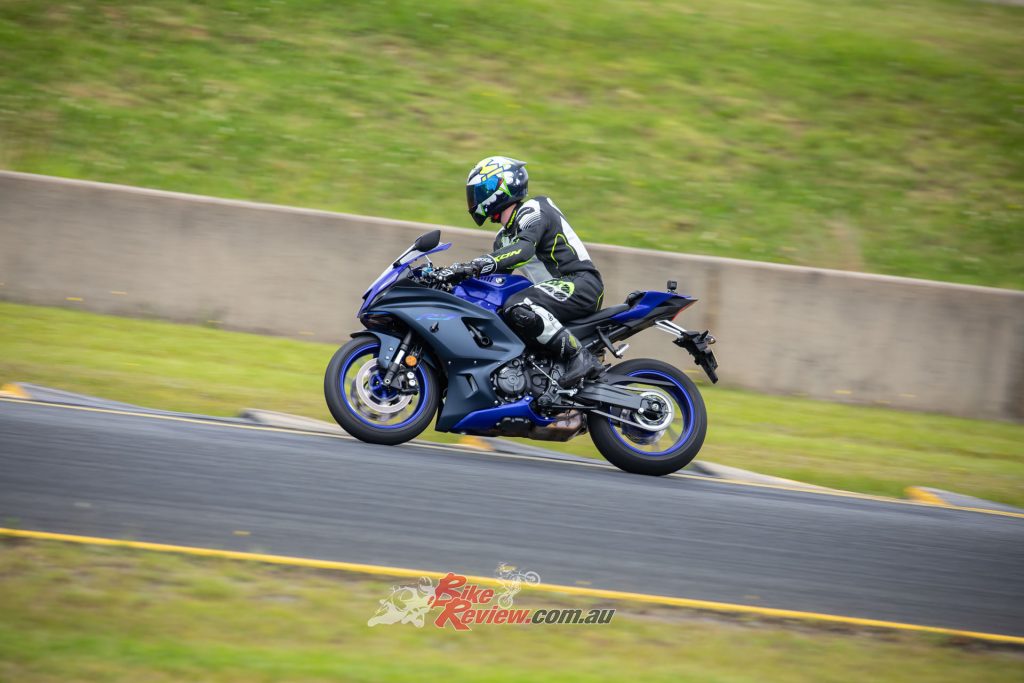
The R7 braking setup is great, lots of confidence braking into corners, but the seat was slippery and that was tiring.
Yamaha seem to have perfected the art of the chassis with a lightweight Deltabox setup which allowed me to just focus on my riding without worrying about a heavy and unpredictable set-up. The footpegs are also in the perfect spot for leaning the bike over, I made sure to use as much of the tyre as I could and at no point did the footpegs touch the ground. They were super grippy and comfortable, no issues with my feet slipping or straining.
Overall, I did thoroughly enjoy the YZF-R7. I believe it will sell well not only in the LAMs trim but in the HO as well with Yamaha reporting a 50/50 split in orders already. I was hung up on the R title that was handed to it and the name it shares with the spectacular 1999 World Superbike homologation R7, it just seemed to fall short of that “supersport” title with it really needing to be more for it to be crowned as a supersport machine.
The 2022 Yamaha YZF-R7 is a spectacular ride and something that the learner market really needs. If you jump on one without the hope of it replacing/surpassing the R6 in terms of performance and technology then you will be far from disappointed. At a rideaway price of $13,999 for the learner approved LA model and $14,999 for the high output HO model it comes in a lot cheaper than its main rivals, the Aprilia Tuono 660 and RS 660. But, one look at the 60th anniversary edition should be enough to make you want one, I know it has almost inspired me to buy one…
Yamaha YZF-R7 Tech Talk
The all-new 2022 YZF-R7 is the latest model in Yamaha’s supersport segment. Built from the ground up with a sleek ultra-thin lightweight chassis powered by Yamaha’s proven CP2 engine, and enhanced with track-focused supersport features, Yamaha say the R7 embodies Yamaha’s rich history of aggressive performance and racing dominance.
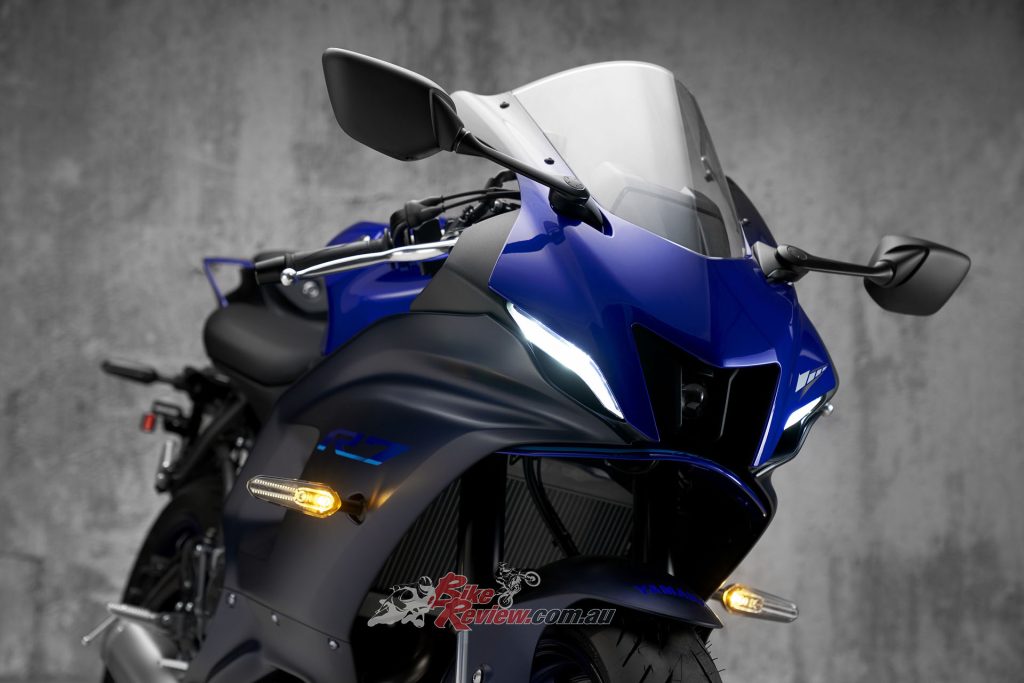
The 2022 Yamaha YZF-R7 is on sale now in Australia, check out all the specifications and tech below…
The all-new 2022 YZF-R7 bridges the gap between the entry-level YZF-R3 and the prestigious YZF-R1, offering a mid-level option for both new riders looking to grow into a more powerful motorcycle, as well as experienced riders seeking a sportsbike with supersport performance that fits within their budget. With a unique package of performance, price and sporty styling, the R7 is true to its R-Series DNA and the lineup’s aspirational history of racing success.
YZF-R7 uses Yamaha’s proven liquid-cooled, four- stroke, in-line two-cylinder, DOHC CP2 engine. Forged aluminium pistons with direct-plated cylinders integrated with the crankcase makes for lighter weight and excellent strength at higher temperatures, ensuring reliability at higher rpm. The crossplane engine’s 270-degree crank provides an uneven firing sequence with a more characterful exhaust note that emphasises torquey acceleration and linear power delivery for response at all engine speeds. Additionally, the R7 has an optimised secondary gear ratio for a sportier performance.
Yamaha claim the YZF-R7’s ultra-narrow, high-strength steel frame provides excellent rigidity for a sporty and responsive ride by mounting aluminium centre braces near the swingarm pivot, which improve torsional rigidity. Rake, trail, and wheelbase dimensions have also been optimised for superb handling while cornering on a racetrack or a twisty road. The narrow, lightweight frame design has resulted in the slimmest bodywork found in Yamaha’s supersport lineup and reduces air resistance while incorporating the rider’s body into its design.
The 2022 YZF-R7 features inverted KYB 41mm front forks with optimised spring rates and damping settings for front-end feel during cornering and braking. The product specific settings make for easy and predictable behaviour, Yamaha state, with a stiff feel for twisty roads and racetracks. The forks are fully adjustable for preload, rebound and compression damping force. The inverted KYB front forks are mounted to the steering tube via a forged aluminium lower triple-clamp, and a gravity-cast aluminium upper triple-clamp.
Yamaha say the link-type Monocross shock with adjustable spring preload and rebound damping strikes a balance between ride comfort and sporty performance for capability across a wide range of uses, from urban commuting to track days. The rear shock unit is mounted horizontally, fastened to the crankcase for efficient use of space and weight, contributing to mass centralisation and further highlighting the bike’s compact size.
The 2022 YZF-R7 is the first Yamaha model to feature a radial brake master-cylinder from Brembo. This new Brembo radial master-cylinder provides a more linear supply of hydraulic pressure to the radial mounted, four pot front brake calipers creating excellent controllability and stopping power through dual 298mm front brake rotors.
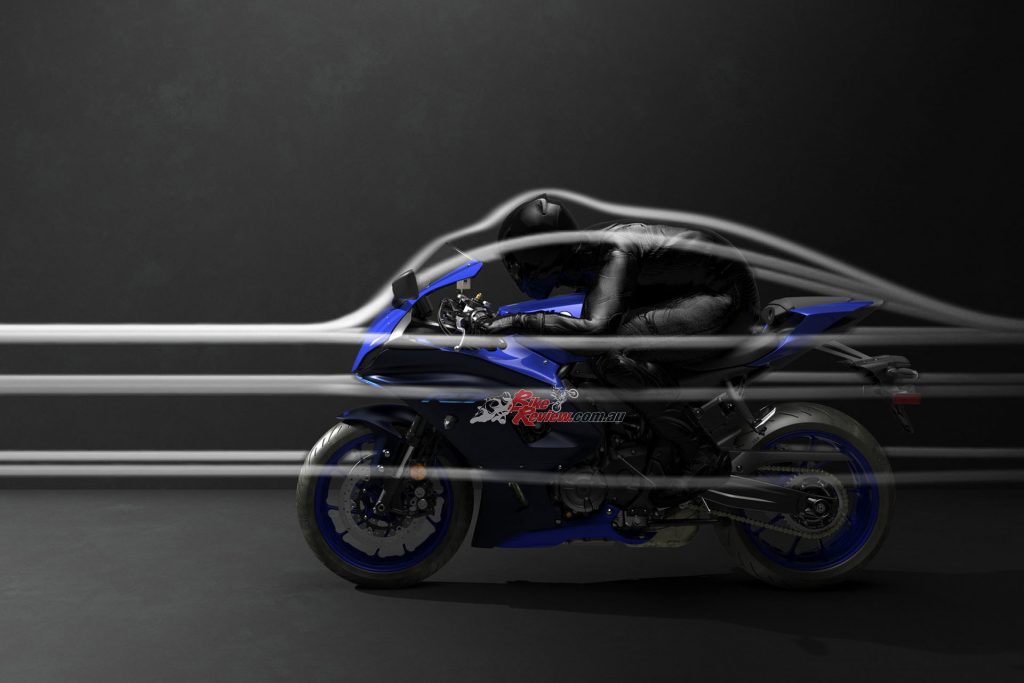
The 2022 Yamaha YZF-R7 has a race inspired riding position and cockpit, with an aggressive sports stance.
Yamaha say the comfortable new seat with material and cushioning used in the YZF-R1, combined with new low-profile fuel tank covers with deep knee pockets for optimal hip and knee positioning gives the rider freedom to move while also providing a firmly planted feel when leaned over. Separate clip-on handlebars are set in relation to the rider’s hips and footpeg positions for an aggressive position allowing the rider to naturally grip the machine with confidence, especially when tucking behind the windscreen on twisty roads or on the racetrack.
The 2022 YZF-R7 features a new full LCD instrument panel. The high-contrast negative dashboard and its compact and lightweight multifunction display with larger displays for the clock, gear, trip meters and tachometer provide clear information. The use of spot colour gives an accent for the high-rpm range display – and new handlebar switches enables the rider to operate the meter more easily and efficiently.
The iconic R-Series M-shaped intake duct and twin-eye front design of the new YZF-R7 houses an adaptive bi-functional LED headlight. The R7 is also equipped with a new LED taillight and front and rear turn signals. Light and compact, Yamaha say the new LED lighting complements the next- generation style of the bike and reinforces the premium specification of the supersport class. Not only do the LEDs offer long life with minimal power draw they provide brilliant illumination for confidence and visibility day or night.
2022 YAMAHA YZF-R7 Specifications (LA in brackets)
Price: $14,999 ($13,999) RRP R/A
Warranty: Two-years unlimited km
Colours: Team Yamaha Blue, Performance Black, 60th anniversary livery ($500)
Claimed Power: LA 38.3Kw[52.1hp]@8000rpm, HO 56.45kW[74.8hp]@9000rpm
Claimed Torque: LA 57.5Nm[42.5ft-lbs]@4000rpm, HO 68Nm[50ft-lbs]@6500rpm
Wet Weight: 188kg
Fuel capacity: 12.8L
Engine: Liquid-cooled, DOHC, inline-twin, four-stroke, four-valve, 80 (78 LA) x 68.6mm bore x stroke, 689cc (655cc LA), 11.5 (11 LA):1 compression, lightweight one-piece two-into-one exhaust Gearbox: Six speed Clutch: Wet, multiple disc
Chassis: Steel Deltabox frame with alloy sideplates and alloy swingarm.
Rake: N/A° Trail: N/Amm
Suspension: KYB 41mm forks, fully adjustable, 130mm travel, KYB shock preload and rebound adjustment, 130mm travel.
Brakes: 298mm rotors (f), dual four-piston calipers and Brembo radial master-cylinder, 245mm rear rotor, two-piston caliper, ABS.
Wheels & Tyres: 10-spoke cast alloy wheels, 120/70 – 17 and 180/55 – 17 Bridgestone S22 tyres.
Dimensions
Wheelbase: N/A mm
Seat height: 835mm
Ground clearance: N/Amm
Overall width: 705mm
Overall Length: 2070mm
Overall height: 1160mm
Instruments: LCD multifunction dash.
The Verdict | Review: 2022 Yamaha YZF-R7 HO, track test, road spin


